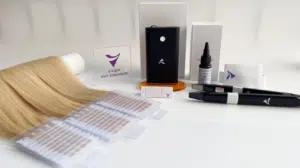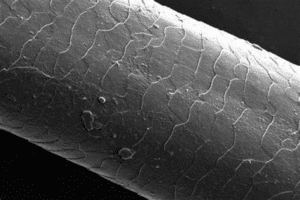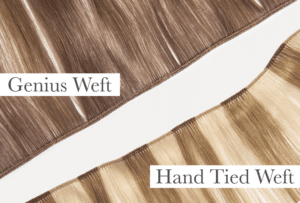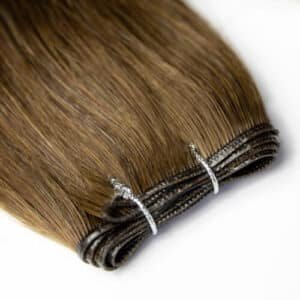Every professional stylist knows this pain: you install what looks like good hair, only for it to tangle, dry out, or shed like crazy within weeks. That’s usually because the cuticle layer is damaged—or missing altogether.
The hair cuticle is the outermost layer of the hair shaft, made up of overlapping cells. It protects the inner structure of the hair and plays a key role in strength, shine, and durability.

Understanding the hair cuticle isn’t just for science geeks—it’s essential if you’re working with hair extensions professionally. Let’s break it all down below.
What Is Hair Cuticle?
Many stylists use the term “cuticle” when describing hair quality. But what exactly is it?
The hair cuticle is a protective layer made of flat, scale-like cells that cover each strand of hair.
Structure and Function
The cuticle is like shingles on a roof. Each scale overlaps to create a strong seal around the inner cortex. When the cuticle lies flat, the hair reflects light—resulting in shine and smoothness. When it’s raised or damaged, hair becomes rough, dull, and prone to tangling.
Direction Matters
In high-quality hair extensions, the cuticle must face in the same direction. This prevents friction and matting. When the cuticle is intact and aligned, hair lasts longer and handles styling better.
What Damages the Cuticle?
- Acidic chemical processing
- Excessive bleaching or dyeing
- Rough handling during manufacturing
- Heat exposure without protection
When buying hair extensions, understanding cuticle health is the first step to evaluating quality.
What Is Full Cuticle Hair Extensions?
You’ve probably seen the term “Remy hair” or “cuticle hair”—but full cuticle hair goes one step further.
Full cuticle hair extensions are made from 100% human hair where the cuticle layer is intact, unstripped, and aligned from root to tip.
Features of Full Cuticle Hair
- Cuticle Direction: All strands face the same direction
- Longevity: Can last 1–2 years with proper care
- Appearance: Smooth, soft, and naturally shiny
- Performance: Tangle-free, minimal shedding, heat-style friendly
How It’s Different From Remy
While Remy hair also refers to aligned strands, some Remy products are acid-washed, which removes parts of the cuticle. Full cuticle hair is untouched. This is why premium factories like Hibiscus Hair only offer full cuticle hair.
Ideal Clients
- Professional stylists
- Hair extension educators
- Salon owners who need quality, consistent products
What Are the Types of Full Cuticle Hair Extensions?
Hair extensions come in many forms, but full cuticle versions offer better performance in every category.
Keratin Hair (Fusion Extensions)
Fusion hair extensions are bonded using keratin, a protein that mimics natural hair. They are one of the most secure and long-lasting extension methods.
U Tip Hair
U tip extensions have a flat, “U”-shaped keratin tip. They are applied using a heat fusion tool that melts the tip and bonds it to the natural hair. Best for clients with thick to medium-density hair.

I Tip Hair
I tip extensions have a cylindrical keratin bond that is applied using beads or rings. No heat is needed. It’s a strand-by-strand method ideal for clients with thinner hair or those avoiding heat.
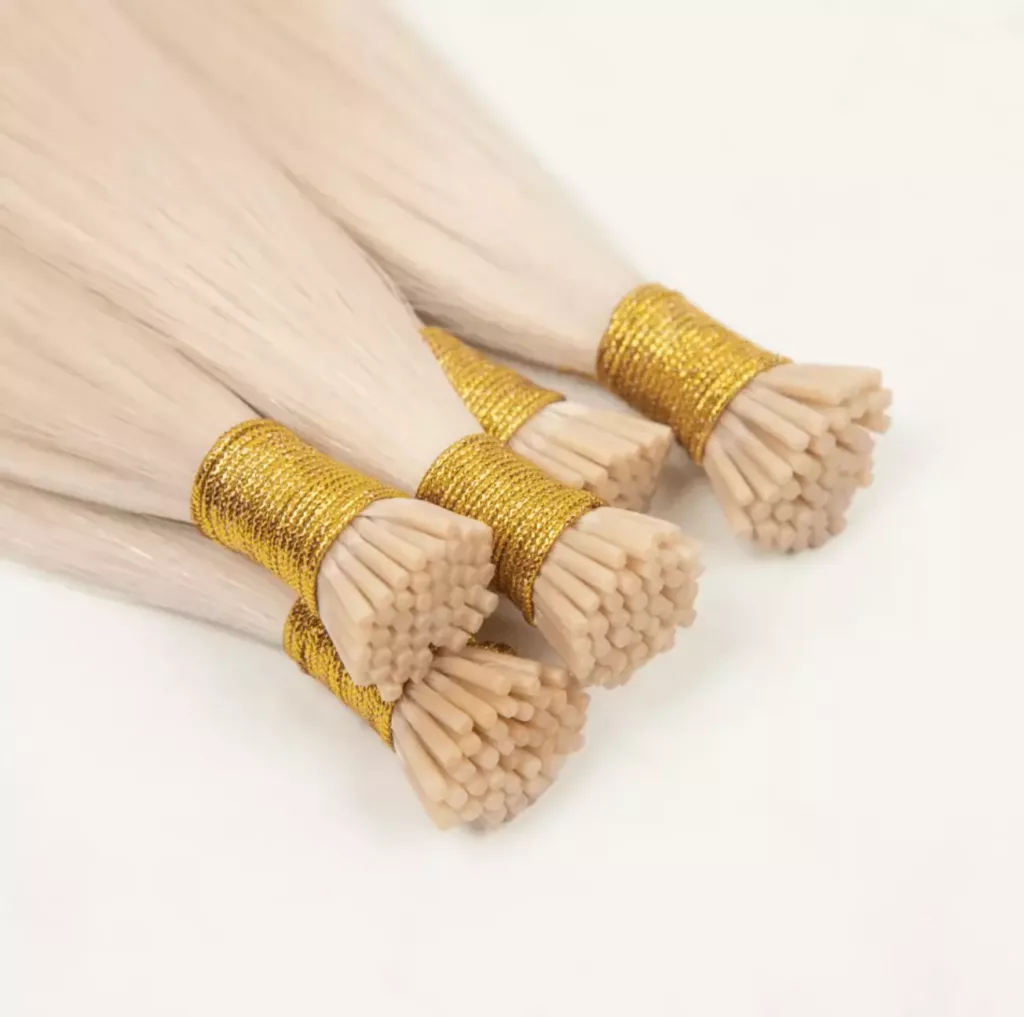
V Tip Hair
V tip extensions have a pointed “V” shape at the tip, offering a slightly different bond area than U tips. They are also applied with heat and suitable for those needing discrete attachment points.

Flat Tip Hair
Flat tips are hybrid extensions combining the benefits of I tip and tape-ins. They are flat like tape but installed with beads like I tips. Great for comfort and flexibility.

Clip In Hair
Clip-in extensions are temporary and designed for easy, do-it-yourself application. Full cuticle clip-ins offer longer wear and a more natural blend.
Classic Clip-Ins
These come in pieces or “wefts” of various widths with small, secure clips sewn onto the top. They’re easy to install and remove in minutes.
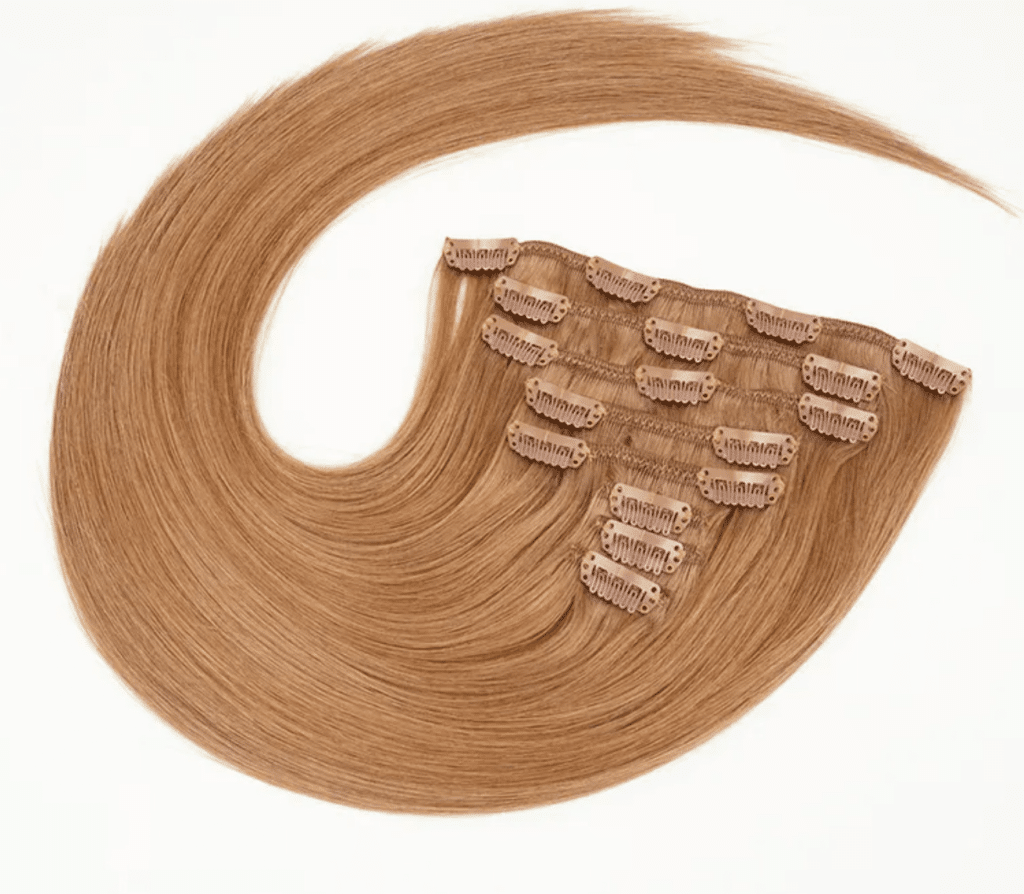
Seamless Clip-Ins
These use a silicone or PU base instead of fabric, creating a flatter appearance. Full cuticle versions feel softer and look more natural even in fine hair.

Lace Clip-Ins
Designed to add Lace to achieve neat and comfortable. Full cuticle hair ensures it blends flawlessly with the client’s natural hair.

Hair Weft
Wefts are continuous tracks of hair used in sew-in or beaded row methods. Full cuticle wefts stay tangle-free, smooth, and reusable.
Hand-Tied Weft
These are thin, lightweight wefts tied by hand. Ideal for clients with fine or thin hair. Cannot be cut without unraveling, but offer the most natural finish.
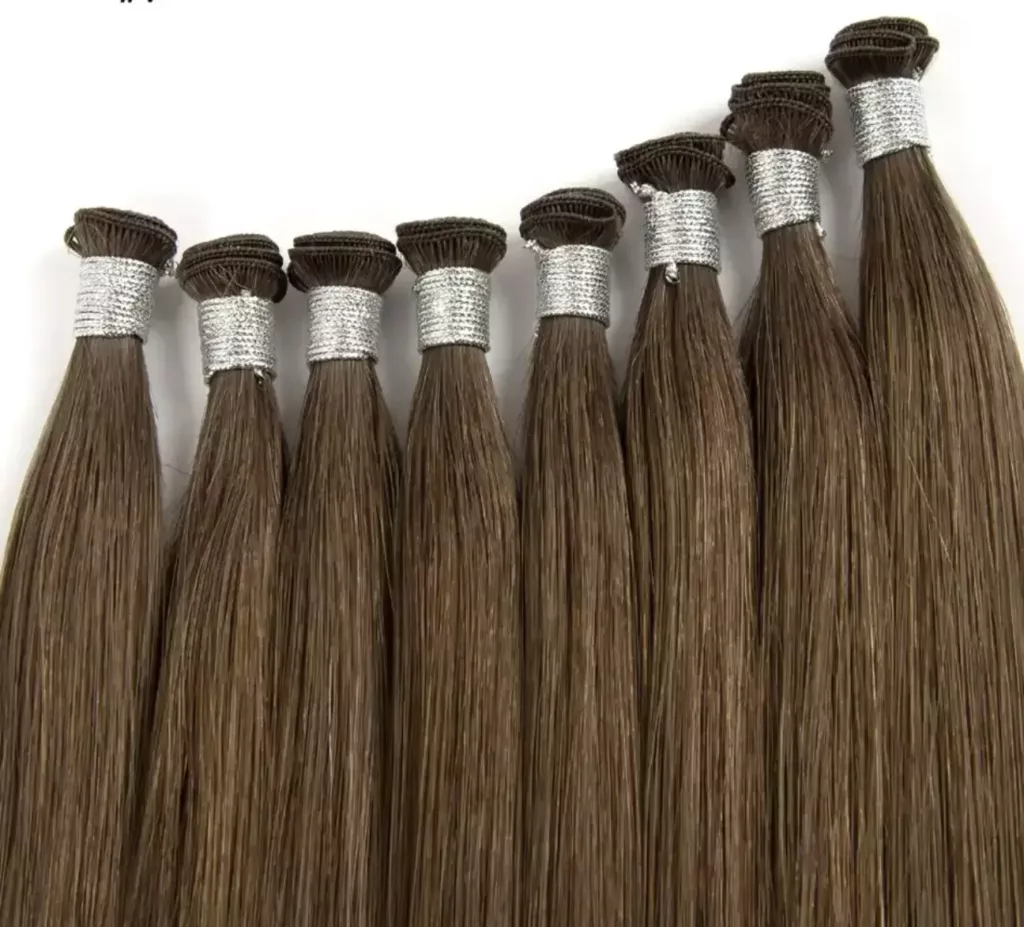
Machine Weft
These are thicker and more durable, made by sewing hair into a track with a machine. They can be cut to fit and hold up well in thicker hair installs.
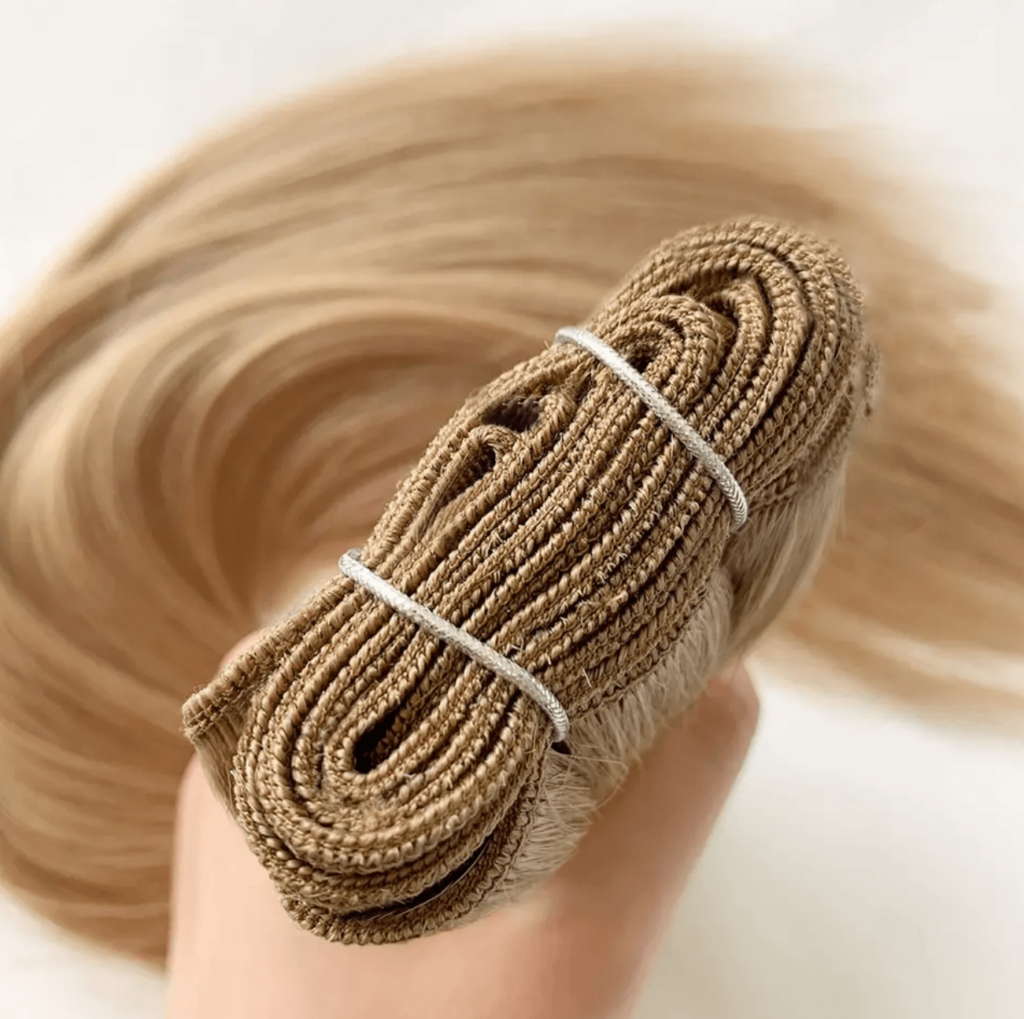
Genius Weft
Also called hybrid weft. Combines the thinness of hand-tied with the cuttable flexibility of machine wefts. Full cuticle genius wefts offer premium comfort and high reuse value.

Flat Weft
Flat wefts are sealed with PU tape instead of sewing thread, creating a flatter and more flexible base. Suitable for both sew-in and beaded methods.
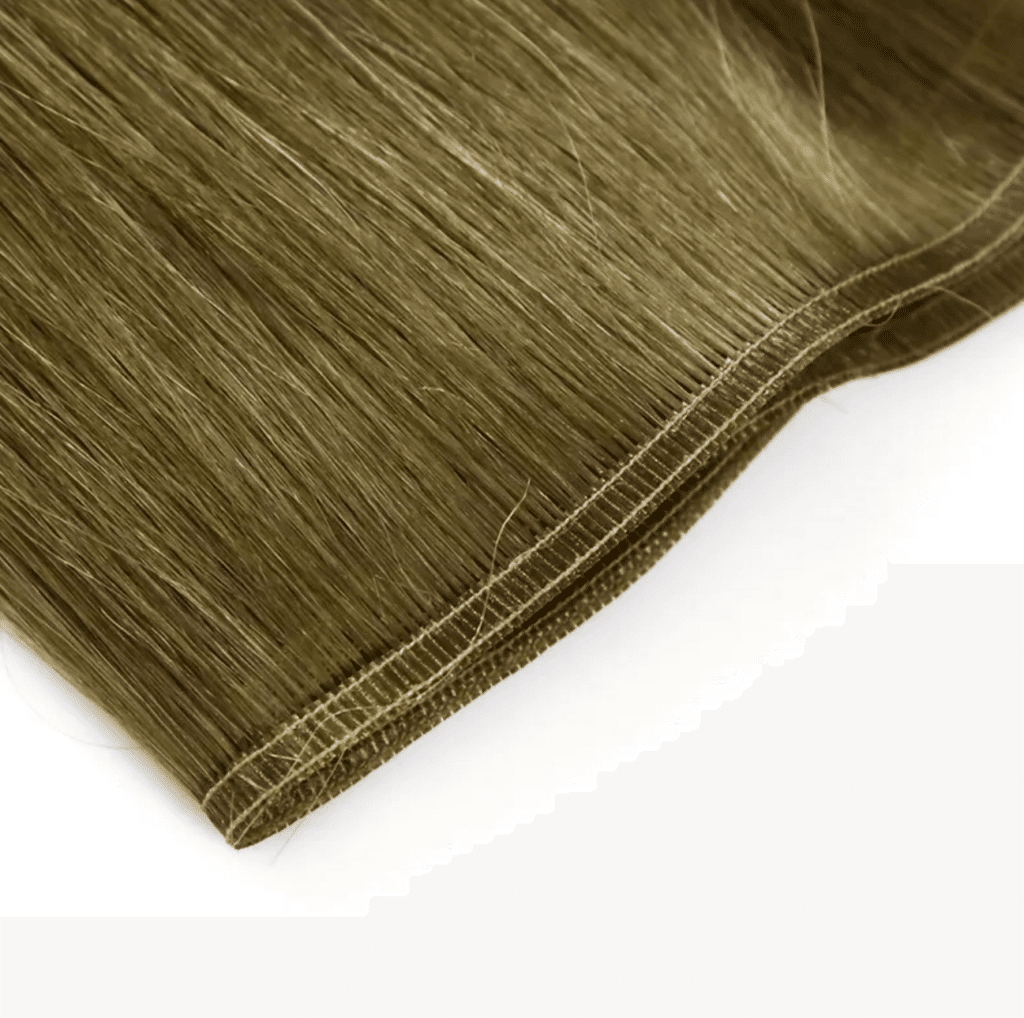
Tape In Hair
Tape-in extensions are one of the most popular semi-permanent methods. They involve sandwiches of adhesive tabs placed on natural hair.
Classic Tape-Ins
These use a traditional PU strip with hair stitched on top. Full cuticle versions stay soft and are ideal for most hair types.

Injection Tape-Ins
Hair is injected into a transparent PU base, mimicking natural scalp appearance. Offers the most invisible finish—perfect for fine-haired clients.

Micro Tape-Ins
Narrower versions of classic tape, designed for hairline and temple areas. They reduce weight and bulk, and with full cuticle hair, blend seamlessly even in thin sections.

Wide Tape-Ins
Often used wider tape in to achive faster installation. Full cuticle makes a big difference in durability and appearance.
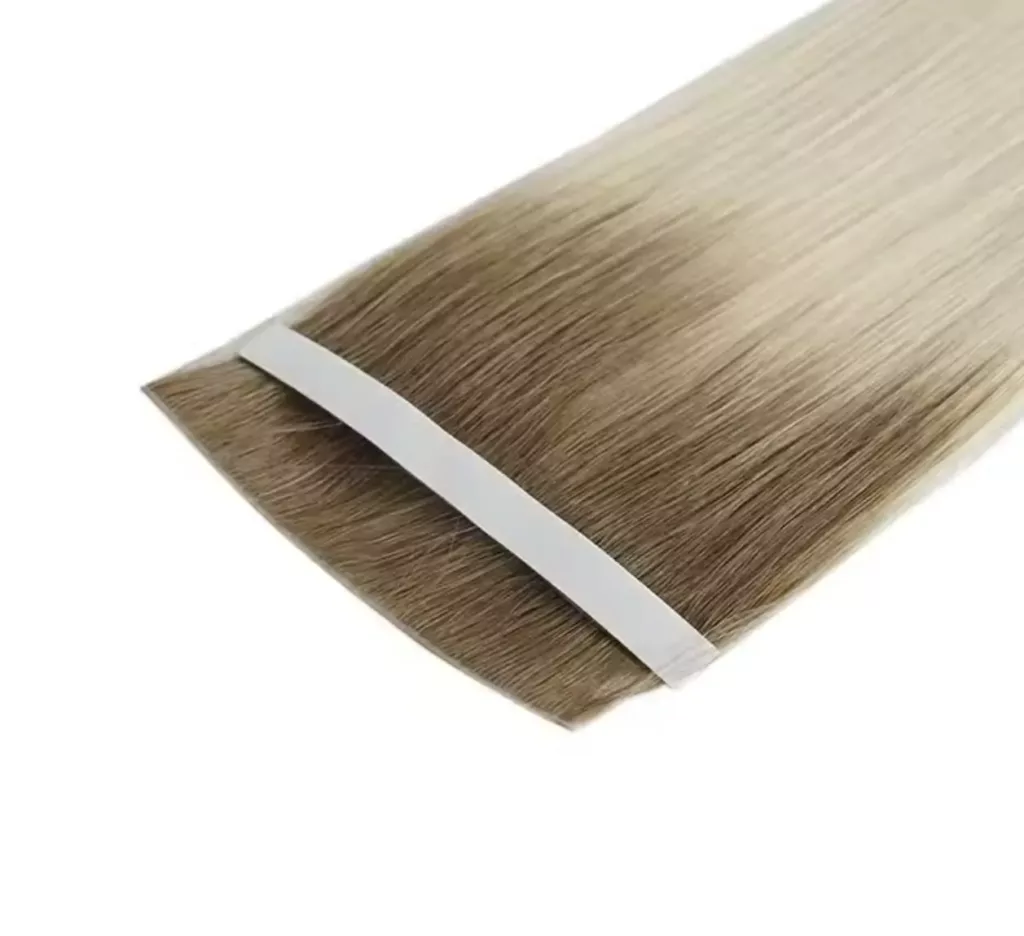
| Extension Type | Sub-Type | Best For | Notes |
|---|---|---|---|
| Keratin Hair | U Tip | Thick to medium hair | Heat-bonded |
| I Tip | Thin to medium hair | Bead-installed | |
| V Tip | Similar to U tip | More pointed bond | |
| Flat Tip | Versatility and comfort | Hybrid style | |
| Clip-Ins | Classic | Daily wear, easy removal | Multiple widths |
| Seamless | Fine hair, discreet finish | PU base | |
| Volumizer | Extra volume in crown or back | Single piece | |
| Weft Hair | Hand-Tied | Lightweight installs | Cannot be cut |
| Machine Weft | Durable and cuttable | Thicker track | |
| Genius Weft | Thin + cuttable hybrid | Premium choice | |
| Flat Weft | Low-profile installs | PU sealed base | |
| Tape Hair | Classic | Standard tape install | Reliable and reusable |
| Injection Tape | Invisible installs | Premium finish | |
| Micro Tape | Hairline installs | Lightweight and narrow | |
| Wide Tape | Fast installation | Classical or injection |
Each of these extension types offers a unique benefit depending on your client’s hair type, lifestyle, and styling habits. But one thing remains the same—using full cuticle hair ensures a higher return on investment, better client satisfaction, and fewer headaches post-installation.
How to Maintain Full Cuticle Hair Extensions?
Even the best extensions can fail without proper care. Full cuticle hair deserves full attention.
Washing Tips
- Always use sulfate-free shampoo
- Wash 1–2 times a week
- Use lukewarm water—never hot
- Condition only from mid-shaft to ends
Drying Techniques
- Gently pat with a towel—no rubbing
- Air dry when possible
- If blow drying, use low heat and a heat protectant spray
Styling Advice
- Use heat tools under 180°C
- Avoid tugging near bonds or wefts
- Braid hair before sleeping to prevent tangling
Storage
- For clip-ins or halo hair, store in a silk bag or original packaging
- Keep away from direct sunlight and humidity
With proper maintenance, full cuticle hair can last 1–2 years, offering salons and clients incredible value.

My Opinion
I’ve seen all types of hair come through my factory over the years. Nothing compares to full cuticle hair in terms of long-term value.
Whether you’re running a salon or wholesaling to pros, full cuticle extensions reduce returns, increase satisfaction, and set your brand apart.
At Hibiscus Hair, we’ve committed fully to sourcing and manufacturing only full cuticle, single-donor hair. It’s not just about marketing—it’s about results that professionals can see and feel.
FAQ
Q: Is full cuticle hair the same as virgin hair?
A: Not always. Virgin hair refers to unprocessed hair, while full cuticle hair means the cuticle is intact and aligned.
Q: How can I tell if the hair is truly full cuticle?
A: It feels smooth in both directions, resists tangling, and lasts much longer than acid-washed or mixed hair.
Q: Can full cuticle hair be colored?
A: Yes. Because it’s unstripped and healthy, it holds color better and more evenly.
Q: What’s the difference between full cuticle and double drawn hair?
A: Double drawn refers to thickness from top to bottom. Full cuticle refers to cuticle condition. You can have both in one product.
Conclusion
The hair cuticle is the foundation of quality in extensions. When intact, it brings shine, strength, and longevity—everything professionals demand from high-end hair.
Where to buy Full Cuticle Hair Extensions?
Hibiscus Hair Manufacturer has been dedicated to producing high-quality Full Cuticle hair extensions for 25 years and is a recognized leader in the industry. If you are interested in finding a reliable hair extensions supplier and wholesale for your brand, please visit our website for more information:
HOME

